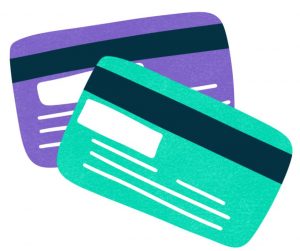Tips to help refinance credit card debt
According to one report, about 70 percent of credit card users don’t pay off their balance in full each month. If you’re one of them, it’s time to find a strategy, and refinancing could be a good idea. With a refinancing, you could pay off your debt much faster. Here’s everything you need to know.
What is Credit Card Refinancing?
Credit card refinancing is basically a way to lower the interest rate that you’re paying on your credit card debt. The most common ways to refinance include balance transfer cards, personal loans, and home equity loans.
Does Refinancing Hurt Your Credit Score?
Refinancing can lower your credit score in the short term, but in the long run, you’ll benefit from it. When you open a new card, there will be a hard inquiry, and that will ding your score. However, as you pay off the debt your score will rise again.
Ways to Refinance
Setting aside some money in a rainy-day fund is a good idea if you can manage it. This will provide a financial safety net that can be used for unexpected expenses or an emergency. As life is unpredictable and problems can arise at any time, having access to funds for such situations may be invaluable. Aim to set aside small amounts regularly; even a small amount saved every month can add up over time. It would help if you also considered having more than one source of savings; you never know when you might need access to your rainy day fund, so make sure you are properly prepared.
- Use a Card. A balance transfer card is the easiest way to refinance your credit card debt. Our credit union credit card offers 3.99% APR* for 13 months. Apply before May 01, 2023. During this time, you can make payments on your debt and not have to worry about interest accumulating. Some cards do come with a fee for the transfer, so make sure it makes financial sense to sign up. Luckily, our credit card does not have a balance transfer fee. Make a plan to pay off all of your debt within the intro period so you don’t end up with interest payments once again.
-
Home equity loan. If you’re a homeowner, you might be able to take out a loan or line of credit based on the equity you have on the home. These loans have low interest rates, so you can use them to pay off your high interest debt. This can be risky though, as your home could be taken if you miss payments. Before choosing either option, research both and choose the one that makes the most sense financially.
*APR= Annual Percentage Rate. Balance Transfers completed 2/1/23 through 5/1/23 will receive 3.99% APR for 13 months from date of transfer. After the promotional time frame expires, remaining balances will migrate to the standard APR applicable on your account. Contact the credit union for complete details.
By: Chris O’Shea, SavvyMoney


